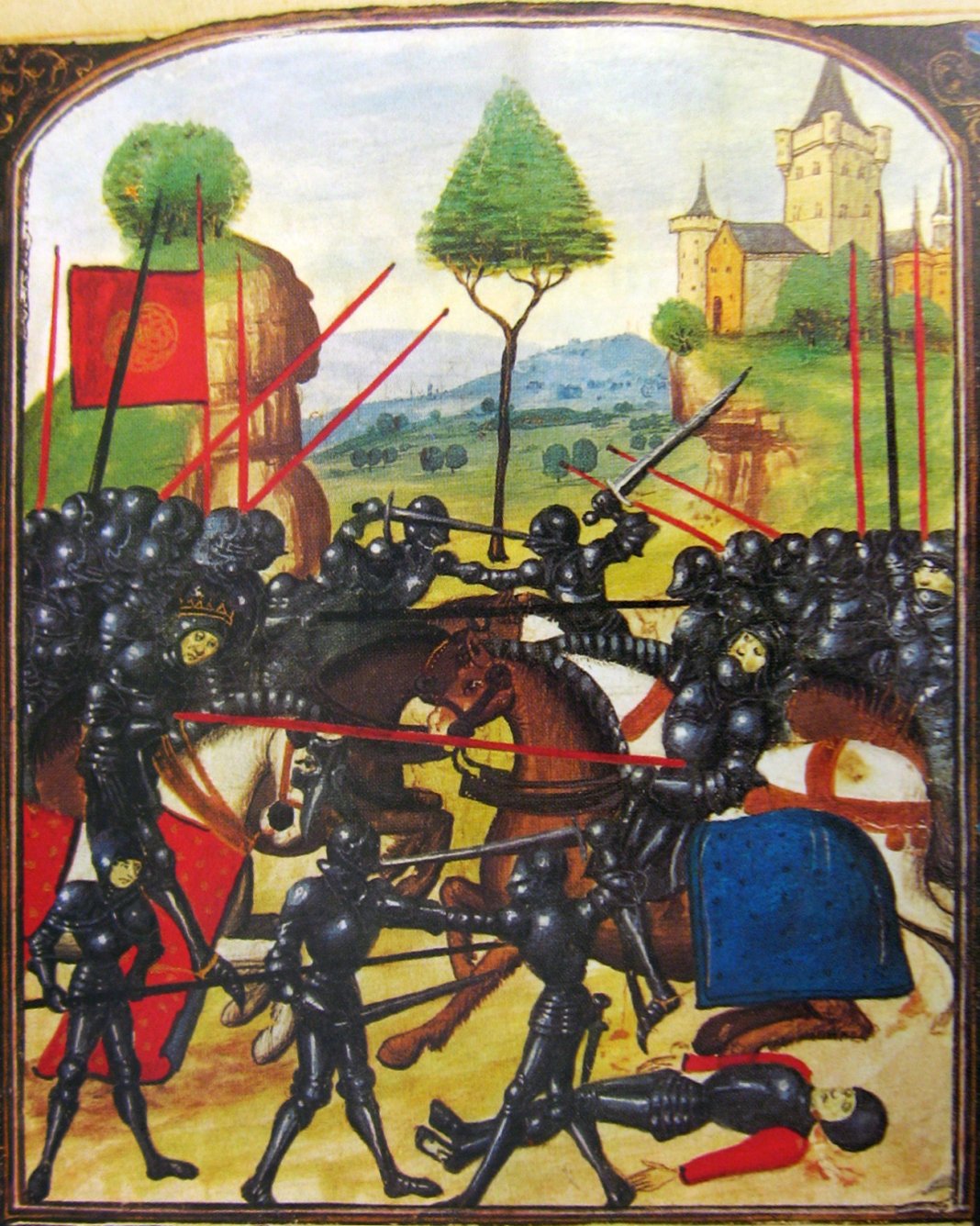Picture this: It’s Easter Sunday, 1471, and the fate of England is about to be decided in a muddy field just north of London. Two armies face each other in the pre-dawn darkness, their banners barely visible through a thick blanket of fog that seems to have rolled in straight from a Shakespeare play. What’s about to unfold at Barnet will quite literally crown a king and reshape the very soul of medieval England.
The Wars of the Roses – that blood-soaked family feud between the houses of York and Lancaster – had been tearing England apart for over a decade. Think of it as Game of Thrones, but with actual historical consequences and significantly more mud. At the center of this particular chapter stood Edward IV, the towering Yorkist king who had recently pulled off one of history’s most audacious comebacks.
Just weeks earlier, Edward had been in exile, watching his throne warm the backside of his former ally-turned-nemesis, the Earl of Warwick. Known as the “Kingmaker,” Warwick had the annoying habit of putting monarchs on thrones and then knocking them off again when they failed to dance to his tune. He’d grown tired of Edward’s independent streak and had conspired to restore the mentally fragile Henry VI to power. But Edward, never one to accept defeat gracefully, had sailed back to England with a small army and an enormous chip on his shoulder.
The stage was set for a confrontation that would echo through the centuries. Warwick, the master manipulator who had made and unmade kings, versus Edward, the warrior-king determined to reclaim his birthright. London watched nervously from the south as these two titans prepared to settle their differences the old-fashioned way – with sharp metal objects and lots of shouting.
As dawn broke on April 14th, 1471, the fog that shrouded the battlefield became an unwitting player in the drama. Both armies, numbering roughly 10,000 men each, could barely see their own feet, let alone their enemies. It was like trying to fight a battle while wearing a blindfold in a steam room. The confusion was so complete that some of Warwick’s own men began attacking each other, mistaking friendly banners for enemy ones in the murky half-light.
Edward, despite being outnumbered and technically still a usurper trying to reclaim his own throne, proved why he was considered one of medieval England’s finest military minds. He positioned his forces with the precision of a chess grandmaster, understanding that in such conditions, organization would trump numbers. His brother Richard, the future Richard III, commanded the vanguard with the cold efficiency that would later make him both feared and famous.
The battle itself was a masterclass in medieval warfare gone wrong – or right, depending on your perspective. Men stumbled through the fog, following the sounds of clashing steel and dying screams. Arrows flew blindly into the mist, as likely to hit friend as foe. It was chaos with a capital C, the kind that would have given military strategists nightmares for centuries.
But here’s where the story takes a deliciously ironic turn. The very fog that seemed to favor chaos actually worked in Edward’s favor. Warwick’s superior numbers became meaningless when nobody could see where anybody else was. Small units became separated, command structures collapsed, and what should have been an organized battle became a series of brutal, intimate skirmishes scattered across the muddy fields of Hertfordshire.
As the fog finally began to lift, revealing the carnage beneath, it became clear that Edward had achieved the impossible. Warwick’s forces were in full retreat, and the Kingmaker himself lay dead on the battlefield – killed, according to some accounts, while trying to flee on foot after his horse became mired in the mud. The man who had made kings had finally met a king he couldn’t unmake.
The victory at Barnet didn’t just secure Edward’s throne; it fundamentally altered the trajectory of English monarchy. With Warwick dead and his coalition shattered, the Yorkist cause was secure. London, which had been holding its breath for weeks, finally exhaled. Church bells rang across the city as news of the victory spread, and Edward’s triumphant return to the capital marked the beginning of a new chapter in English royal history.
But perhaps most remarkably, this battle demonstrated how the capricious nature of weather could change the course of nations. That Easter Sunday fog didn’t just obscure the battlefield – it obscured the future itself, allowing a determined king to reclaim his destiny and ensuring that the white rose of York would continue to bloom in the gardens of English royalty.
The Battle of Barnet stands as a testament to the unpredictable nature of medieval warfare and the thin line between triumph and disaster that defined the Wars of the Roses. In the end, it wasn’t superior numbers or better strategy that won the day – it was the ability to adapt to chaos, and perhaps a little help from the English weather.
A Little Bit of London In Your Inbox Weekly. Sign-up for our free weekly London newsletter. Sent every Friday with the latest news from London!



